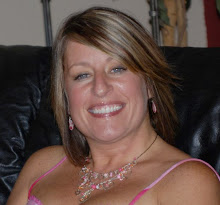 It is time for a FIRST Wild Card Tour book review! If you wish to join the FIRST blog alliance, just click the button. We are a group of reviewers who tour Christian books. A Wild Card post includes a brief bio of the author and a full chapter from each book toured. The reason it is called a FIRST Wild Card Tour is that you never know if the book will be fiction, non~fiction, for young, or for old...or for somewhere in between! Enjoy your free peek into the book!
It is time for a FIRST Wild Card Tour book review! If you wish to join the FIRST blog alliance, just click the button. We are a group of reviewers who tour Christian books. A Wild Card post includes a brief bio of the author and a full chapter from each book toured. The reason it is called a FIRST Wild Card Tour is that you never know if the book will be fiction, non~fiction, for young, or for old...or for somewhere in between! Enjoy your free peek into the book!You never know when I might play a wild card on you!
and the book:
10 Hours to Live: A True Story of Healing and Supernatural Living
Whitaker House (September 1, 2010)
 Brian Wills is an author, missionary, conference speaker, and former tennis pro, best known for his miraculous healing from a rare, deadly cancer known as Burkitt’s Lymphoma. He is the first and only person to date to survive the disease after being diagnosed in its advanced stages; he went on to compete on the pro tennis circuit, and later serve as a national coach and executive director for the U. S. Tennis Association. He and his wife, Beth, founded Healing For the Nations and currently serve as missionaries. The Wills’s have four children and live near Richmond, Virginia.
Brian Wills is an author, missionary, conference speaker, and former tennis pro, best known for his miraculous healing from a rare, deadly cancer known as Burkitt’s Lymphoma. He is the first and only person to date to survive the disease after being diagnosed in its advanced stages; he went on to compete on the pro tennis circuit, and later serve as a national coach and executive director for the U. S. Tennis Association. He and his wife, Beth, founded Healing For the Nations and currently serve as missionaries. The Wills’s have four children and live near Richmond, Virginia. Visit the author's website.
Product Details:
List Price: $12.99
Paperback: 192 pages
Publisher: Whitaker House (September 1, 2010)
Language: English
ISBN-10: 1603742433
ISBN-13: 978-1603742436
AND NOW...THE FIRST CHAPTER:

CHAPTER ONE
Two-Minute Warning
My hand was moist on the racquet as I slammed an ace across the net and watched my opponent scramble, almost tripping as he missed the ball. At twenty-two, I had almost sixteen years of experience on the tennis court. My serve proved they were years well spent. So did the record I held when I graduated from Drury University: 121 wins—more than any other player in the school’s history at that time. Now, as the assistant coach at the University of Richmond, I was training hard for my upcoming trip to Europe, where I would play on the professional satellite circuit.
Perspiration matted my shirt to my back as I sprinted to hit a backhand across the net. In mid-stride, I caught my breath as something like liquid fire snaked across my abdomen. Sweat dotted my upper lip, not from exertion, but from the mind-numbing pain that seared me, licking my insides to a slow burn. I faltered—my steps unsteady, and my hand trembling on the racquet. Gritting my teeth, I decided to take a break and sat in the locker room with my head in my hands. What’s happening to me?
My doctor had said the occasional bouts of pain were the result of overtraining, so I’d cut back on my training schedule. I made sure I got plenty of rest and ate well. But it didn’t help. When I least expected it, the fire still roared to life and caught my breath away. Since the pain was in my lower abdomen, close to my bladder, I’d gone to see a urologist.
"It must be in your head," he’d said, dismissing me.
He was wrong. He had to be. There was nothing psychological about the pain that drove me off the court that day. Thankfully, when the pain left my body, it disappeared from my mind. Weeks passed in a blur of activity as I prepared for my flight to Europe. This would be the fulfillment of a lifetime of dreaming and training. I refused to let it be marred by the sudden flames of fire.
Sidelined
My flight was scheduled to depart on Super Bowl Sunday, the last Sunday in January 1987. That week, snow fell in piles so deep that the world looked like it had been iced with a thick layer of whipped topping. I waded out into the snow and let my shovel slice through the drifts that covered the driveway. Bundled against the freezing wind, I worked up a sweat, and, by the time I’d finished clearing away the snow, my back ached, strained by the repetitive work. I fell into an exhausted sleep Friday night but woke around midnight with chills, fever, and pain. Saturday morning, I went to see my family doctor.
"Your blood count is alarming," he said, frowning. "I’m going to admit you to the hospital for further tests."
"But my flight leaves tomorrow!"
It appeared that I would not be on it. My family rallied around me at the hospital. "Nothing’s changed except the date you leave," they assured me. "We’ll reschedule your flight."
After being admitted to Chippenham Hospital in Richmond, Virginia, I curled up in a fetal position on the bed in my private room and clenched my jaw against the unrelenting back pain. Outside, snow and ice covered the parking lot. Inside, I shook with chills, despite the warmth of the room. My stomach felt full and distended.
Over the next nine days, I suffered through a sigmoidoscopy, a CT scan, a needle biopsy, and multiple blood tests. I was stunned when the tests revealed that my right kidney had stopped working. No wonder my back was hurting! The pain hadn’t come from shoveling snow or my training schedule.
"You may have a kidney stone," the doctor said, hazarding a guess.
Each day, family and friends showed up at the hospital to encourage me. At night, when they all went home, and the hustle and bustle of the hospital dimmed with the lights, I lay in bed and pondered my situation. I was a twenty-two-year-old athlete in excellent physical condition. It couldn’t be anything serious.
Could it?
The Sentence
On February 6, the ninth day of my hospitalization, my parents, brother, sister, aunt, and uncle were in my room laughing and telling stories when my doctor arrived.
"I have some really bad news," he said, sorrow dimming his kind eyes. "Brian has a mass in his abdomen the size of a golf ball, which has been diagnosed as Burkitt’s lymphoma, a rare, fatal disease usually found in African children. It progresses very quickly, and there are only three hospitals in the world that treat it. I’m trying to get you into the closest one: the National Institute of Health, NIH, in Bethesda, Maryland."
We must have looked as baffled as we felt.
"Do you have any questions?" the doctor probed.
We couldn’t think of a thing to say except that we wanted to go home for the weekend and pray.
"That’s fine," the doctor said, "but I must warn you—this is a very fast-growing tumor. It’s been known to kill children in a day."
Taking a Stand
The doctor’s words hung over the room like a death sentence long after he’d gone. The once-smiling faces of my family members looked stricken. I reeled inside, trying to regain my bearings. How could I have a serious illness? I was young and healthy. My whole life stretched before me like a promise.
Some of my family already understood what I had yet to grasp: the tumor was malignant, and I was fighting for my life. I’d been hit hard by a foe called Burkitt’s lymphoma.
Our family’s quick response to go home for the weekend to pray came as no surprise. We’d always been a close Christian family. Just as my father and grandfather had passed their love of sports down to me, my parents had passed down to us kids a spiritual heritage. They had lived their faith in front of us; they weren’t ashamed to let it show. I’d grown up attending the local church and traipsing along with them when they made hospital and nursing home visits. My parents also ministered to young people, and it wasn’t unusual for groups of up to forty of them to gather at our house, worshipping God until the wee hours of the morning.
The gospel I’d witnessed since I was a child was not a weak one. I had attended healing services, and I’d seen blind eyes opened. I’d witnessed deaf ears hear again. I’d seen polio victims completely healed. I’d been instantly healed of many childhood injuries, and my parents had dug into spiritual healing a few years before when my mother had been diagnosed with allergies. Later, my father received a diagnosis of cancer. Through it all, we learned that God’s Word, written in the Bible, was alive and powerful. We’d also learned the power of our own words. By believing God and confessing His Word over their situations, both of my parents had been healed.
I didn’t know what Burkitt’s lymphoma was, but healing had always come easy for me. I left the hospital ready to receive a miracle.
At home that weekend, as I tried to sleep, I realized that what my doctor had said was true: I was running out of time. Lying on my side, I could see the cancerous mass—now much larger than a golf ball—move as I turned.
Open Doors
While I was trying to receive my healing, my doctor was doing everything possible to get me into the National Institute of Health in Bethesda, Maryland. He was told that there was a six-month wait.
A few months earlier, my doctor had attended a medical conference. During the conference, a physician sitting beside him had introduced himself and given my doctor his card. "I’m at the National Institute of Health," he’d said. "If you run across someone with a very fast-growing cancer, like Burkitt’s lymphoma, give me a call. That’s my specialty."
On Monday, my doctor called this man, and every door to the NIH swung open for us.
On Tuesday, my parents drove me to Maryland for a consultation. The National Institute of Health was an impressive complex of distinguished-looking buildings housing the newest technology, as well as personnel doing cutting-edge research. By the time we arrived, the pain was so severe I couldn’t walk; my family carried me inside.
Ushered into a small room, I was examined by Dr. Young, one of the world’s leading authorities on Burkitt’s lymphoma. Afterward, he shook his head. "I don’t think there’s anything I can do for you," he said. "You’re too far gone."
Too far gone?
Beaten at the Game of Life
The tumor that had been the size of a golf ball on Friday now measured almost ten inches in diameter. The cancer had spread to my lungs, liver, and most of the organs of my body. "Today is Tuesday, and your son won’t be alive by Friday," the doctor explained to my parents. "I’ll admit him to the hospital and keep him as comfortable as possible." He stepped out of the room to make the necessary arrangements.
I felt like I’d been shoved over a precipice and was hurtling toward destruction at breakneck speed. I didn’t know how to stop my fall. My life had spiraled out of control.
It was my mother’s words that slowed my descent and set me on solid ground again. "No, God’s Word says that by Jesus’ stripes, Brian is healed. ‘Let God be true, and every man a liar.’" (See Isaiah 53:5 kjv; Romans 3:4 niv.)
"Let God be true, and every man a liar," we all agreed.
"We’re going to make our stand right now and believe God, no matter what the doctors say," she announced.
In my mind’s eye, I saw a football game in progress. One team was whipping the other when I heard a two-minute warning. I realized that, so far, my team was being beaten by Burkitt’s lymphoma, and there was a two-minute warning in my life. The game wasn’t over yet, but I knew that without a miracle, I would never make it out of the hospital alive.
My Review:
10 Hours to Live is a MUST READ! This is the story of a 22-year old given a death sentence from one of the deadliest cancers, Burkitt's lymphoma as well as the story of the only living survivor of this cancer. It happens to be Brian Wills who through his faith in the LORD overcame and survived this horrific cancer! 10 hours to Live will inspire you! It will leave you fired up and encouraged! When we stand on the Promises of God and see HIM show up in a Powerful way, our faith is renewed and if your needing a Faith Booster then go out and get 10 hours to Live!! I recommend this book to everyone!!
Happy Reading!
















1 comments:
Girl, I have been missing you. Continuing craziness in the perdue zoo! Hope you are doing well.
Hugs,
andrea
Post a Comment